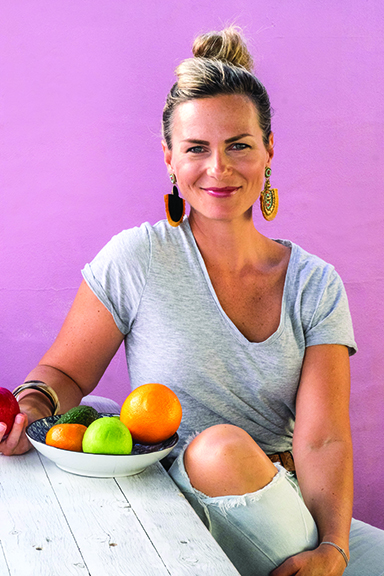Spring Back into Health: Improving Your Relationship with Food
Written by Emma Dean
Have you ever embarked on a journey of dietary change with a sense of confidence and discipline, everything’s going great, then in a single delicious moment, you fall off the ‘change’ wagon, and along comes frustration, doubt and sadly, even a sense of failure for some people. Why does this happen?
Successfully changing your eating patterns or food choices isn’t about deprivation and willpower. It’s about taking the time to understand your relationship with food, so that you can navigate those moments that require a touch of resilience and commitment.
Step one is to remember that food is fundamental to life, don’t fight it. Yes, food means survival, but humans are tribal creatures, so it also means safety, belonging, comfort and connection. Honour this, allow yourself to be comforted by food and to connect with others through food, while eating in a way that nourishes your body and mind.
Step two is to get curious about what food is for you. Identify a deep personal goal. There are many valid reasons for wanting to change the way you eat such as medical conditions, managing weight, food allergies or intolerances, pregnancy, ethics, and environmental sustainability. The difficulty comes when we don’t feel a deep connection to how this purpose plays out in daily life. Ensure you have clearly identified how your life will change, feel this motivation every day and be ready for the moments when it may seem less important.
Understand what drives you to eat. Energy requirements and true hunger, that tummy rumbling empty feeling, are only a small part of the feeding cycle. Routines, habits, emotions, hormones, addictions, location and social experiences all play into triggers that drive us to seek food.
Recognise influences on food choices. Deciding what to eat should start with “what do I need?” but for most of us the question is “what do I feel like?”. Eating is a sensory experience, not just a nutrient requirement, and food manufacturers have taken full advantage of this. They know how to trick our appetite systems with big flavours, texture, packaging, advertising and even health claims that keep us coming back for more, over-riding our intuitive ability to know what macronutrients we need and how much to eat.
Discover the right foods for your body. Humans may have the same overall biology, but the quality of digestive function, gut health, immune regulation, metabolism, and nutrient requirements are different for each of us and can change throughout our lives. If you embark on a dietary shift that isn’t right for your body, you will gradually feel worse, and commitment disappears.
Navigate your challenges. Time, skills, resources, family dynamics and motivation can all impact our ability to prioritise and successfully maintain dietary change. Reflect on which areas may be an obstacle for you and what you need to navigate around them. Feelings of scarcity, shame, self sabotage, or failure also feed into our ‘story’ with food. Make sure you seek additional and professional support if needed in these areas.
Changing habits takes time, support and deep commitment. Shifting your relationship with food and eating with true purpose means you no longer need a wagon, the path to health is walked on your own two feet.

Emma Dean, owner of Su Luna Nutrition based in Pottsville.
Emma is a registered and experienced Functional Nutritionist specialising in food behaviour coaching for all ages. Her approach to nutrition is realistic and balanced, engaging the whole family to find a healthier food philosophy that supports digestive function, improves dietary intake, and establishes healthy eating foundations for life. Emma provides support online or face-to-face through private consultations, community-based programs and workshops.
You can connect with Emma at www.suluna.com.au to learn more about her nutrition services and book in a FREE 20 minute discovery call

